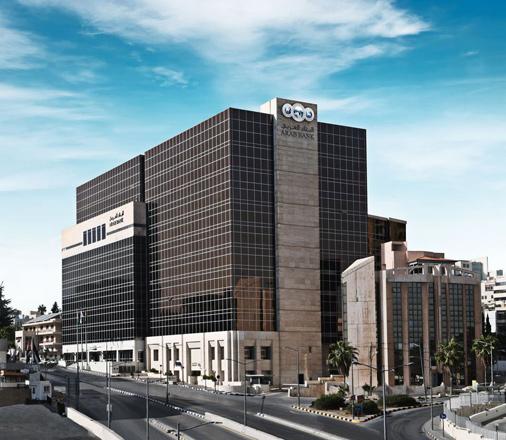- Mix
- Tue-2021-01-26 | 07:25 pm

Nayrouz News Agency : Arab Bank Group concluded 2020 reporting net income after tax of $195.3 million compared to $846.5 million in 2019, recording a drop of 77 per cent, according to a statement of the Arab Bank Group.
The group’s equity grew to reach $9.4 billion, said the statement, adding that the board of directors recommended the distribution of 12 per cent in cash dividends for the financial year 2020.
The year 2020 was challenging for global and regional banking sectors due to economic contraction, higher cost of risk, and lower interest rates, in addition to the plunge in oil prices since the outbreak of the pandemic, the group said in its statement.
Customer deposits grew by 7 per cent to reach $38.7billion compared to $36.2billion, while loans grew by 1 per cent to reach $26.5 billion as compared to $26.1 billion.
The group maintained its robust capital base with an equity of $9.4 billion and a capital adequacy ratio of 16.8 per cent, calculated in accordance with Basel III regulations.
The group enjoys high liquidity with a loan-to-deposit ratio of 68.4 per cent, while credit provisions held against non-performing loans continue to exceed 100 per cent.
Sabih Masri, chairman of the board of directors said the COVID-19 pandemic impacted businesses around the world and the economic environments in which they operate.
"In an effort on safeguard their economies, governments and regulatory authorities launched various programmes to mitigate the impact of the crisis,” he said in the statement. "The bank dealt with these challenges while maintaining its strong liquidity and capital positions,” he noted.
Nemeh Sabbagh, chief executive officer, said the group took several initiatives to help mitigate these unprecedented economic and market conditions, safeguarding its healthy liquidity and capital ratios, maintainingresilient asset quality metrics, and scaling up digital banking initiatives and channels across the Group.
The increased provisions taken across the group are in accordance with the guidelines of International Financial Reporting Standard # 9, and as per the bank’s internal expected credit loss model, and include general provisions built due to the current economic situation in Lebanon, he added.
The 2020 financial statements require the approval of the Central Bank of Jordan.
-
 Will Trump end up like Kennedy?2026-02-03
Will Trump end up like Kennedy?2026-02-03








